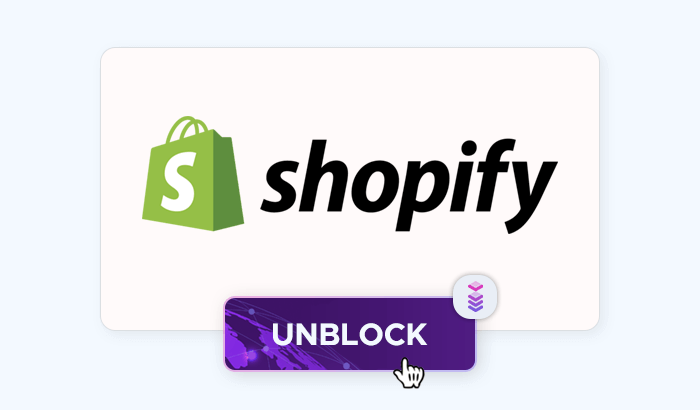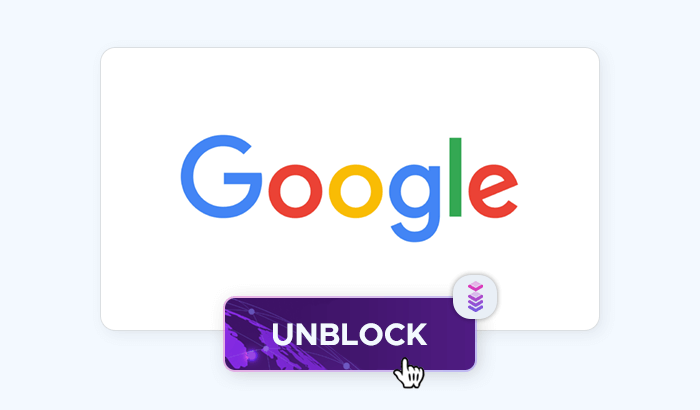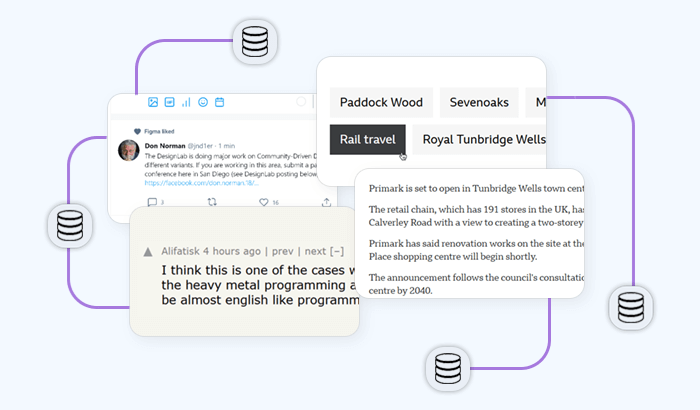- Why do you Need to Scrape Facebook?
- What Pages you Can Crawl
- How to Scrape Facebook Pages with Infatica API
- Features of Infatica Facebook Scraper API
- Facebook Posts Scraping with Python
- What about the Facebook API?
- Is it legal to scrape Facebook data?
- What is the best method for scraping Facebook data?
- Frequently Asked Questions


It’s easy to see why more and more companies are continuing to scrape Facebook: As the world’s largest social platform, Facebook holds vast amounts of data you can use to help your business grow. In this article, we’re providing you with a step-by-step guide to using Infatica Scraper API to collect Facebook data with automation – or building your own Facebook page crawler as an alternative.
Why do you Need to Scrape Facebook?
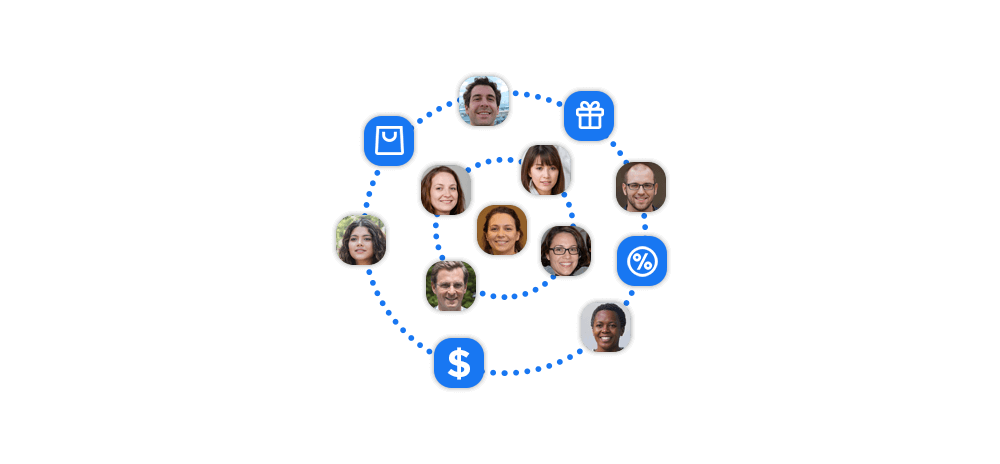
With more than 2.80 billion monthly active users, Facebook is the go-to place for many people to share and discuss news, go shopping, watch videos, and more. A huge portion of this data is actionable – something you can use to build products more quickly and understand your customers better. Here are three reasons for trying a Facebook scraper:
Create aggregation services that feature the most interesting content – Facebook posts, images, videos, etc. – to provide limitless entertainment to your prospective users.
Perform trends and public opinion monitoring, which is easy thanks to Facebook’s large user base.
Keep in touch with your customers via company- and industry-focused Facebook groups that attract interested users, and more.
What Pages you Can Crawl
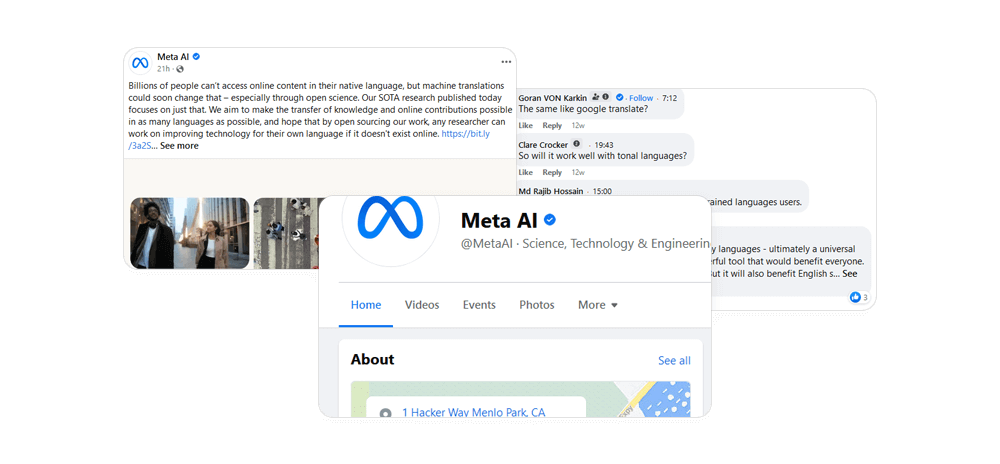
Although any data type is technically scrapable, collecting personal information (e.g. first and last names, genders, contact details, personal websites, etc.) becomes more problematic due to privacy laws like GDPR. For the purposes of this tutorial, we’ll keep Facebook pages scraper simpler and collect data that is easier to classify as “publicly available”.
Posts
Facebook posts are the primary driver of engagement: They bring value via text, images, videos, and more. Businesses use posts to deliver updates and show their activity. Additionally, posts can appear in search results.
Facebook Business Pages
Facebook business pages are a way for all types of companies – from brick-and-mortar stores to tech giants like Tesla – to show their web presence. Facebook page crawlers, therefore, can prove useful for monitoring competition: Each business page can provide valuable insight into customer behavior and other aspects.
How to Scrape Facebook Pages with Infatica API
Infatica Scraper API is an easy-to-use – yet powerful – scraping tool for downloading Facebook pages at scale. Let’s see this API in action:
Step 1. Sign in to your Infatica account
Your Infatica account has different useful features (traffic dashboard, support area, how-to videos, etc.) It also has your unique user_key value which we’ll need to use the API – you can find it in your personal account’s billing area. The input example for theuser_key value is a 20-symbol combination of numbers and lower- and uppercase letters, e.g. KPCLjaGFu3pax7PYwWd3.
Step 2. Send a JSON request
This request will contain all necessary data attributes. Here’s a sample request:
{
"user_key":"KPCLjaGFu3pax7PYwWd3",
"URLS":[
{
"URL":"https://www.facebook.com/MetaAI/posts/pfbid02FQ739ocYvULn8m7h7FUwzJpj82CsXNUSUNEjXTU3zUoFcKi3snZBDJ8iyzUuQyJXl",
"Headers":{
"Connection":"keep-alive",
"User-Agent":"Mozilla\/5.0 (Macintosh; Intel Mac OS X 10.15; rv:71.0) Gecko/20100101 Firefox/71.0",
"Upgrade-Insecure-Requests":"1"
},
"userId":"ID-0"
}
]
}Here are attributes you need to specify in your request:
- user_key: Hash key for API interactions; available in the personal account’s billing area.
- URLS: Array containing all planned downloads.
- URL: Download link.
- Headers: List of headers that are sent within the request; additional headers (e.g. cookie, accept, and more) are also accepted. Required headers are: Connection, User-Agent, Upgrade-Insecure-Requests.
- userId: Unique identifier within a single request; returning responses contain the userId attribute.
Here’s a sample request containing 4 Facebook URLs:
{
"user_key":"KPCLjaGFu3pax7PYwWd3",
"URLS":[
{
"URL":"https://www.facebook.com/MetaAI/posts/pfbid02FQ739ocYvULn8m7h7FUwzJpj82CsXNUSUNEjXTU3zUoFcKi3snZBDJ8iyzUuQyJXl",
"Headers":{"Connection":"keep-alive","User-Agent":"Mozilla\/5.0 (Macintosh; Intel Mac OS X 10.15; rv:71.0) Gecko/20100101 Firefox/71.0","Upgrade-Insecure-Requests":"1"},
"userId":"ID-0"
},
{
"URL":"https://www.facebook.com/watch/?v=434230455259918",
"Headers":{"Connection":"keep-alive","User-Agent":"Mozilla\/5.0 (Macintosh; Intel Mac OS X 10.15; rv:71.0) Gecko/20100101 Firefox/71.0","Upgrade-Insecure-Requests":"1"},
"userId":"ID-1"
},
{
"URL":"https://www.facebook.com/MetaAI/posts/pfbid07QqTL5HeNX9Tt8hbpKHHov5RPubnz2eqE5o9aCj35SeMeYdZo1Y6AbLtx5xLEoj2l",
"Headers":{"Connection":"keep-alive","User-Agent":"Mozilla\/5.0 (Macintosh; Intel Mac OS X 10.15; rv:71.0) Gecko/20100101 Firefox/71.0","Upgrade-Insecure-Requests":"1"},
"userId":"ID-2"
},
{
"URL":"https://www.facebook.com/MetaAI/posts/pfbid0HwkvB2v1WarmUVY6U4oD7XqUmKZHDPFLM68bzwwzJ4b46JFFG392VABccSjPqJBhl",
"Headers":{"Connection":"keep-alive","User-Agent":"Mozilla\/5.0 (Macintosh; Intel Mac OS X 10.15; rv:71.0) Gecko/20100101 Firefox/71.0","Upgrade-Insecure-Requests":"1"},
"userId":"ID-3"
}
]
}Step 3. Get the response and download the files
When finished, the API will send a JSON response containing – in our case – four download URLs. Upon receiving the response, notice its attributes: Status (HTTP status) and Link (file download link.) Follow the links to download the corresponding contents.
{
"ID-0":{"status":996,"link":""},
"ID-1":{"status":200,"link":"https://www.domain.com/files/product2.txt"},
"ID-2":{"status":200,"link":"https://www.domain.com/files/product3.txt"},
"ID-3":{"status":null,"link":""}
}Please note that the server stores each file for 20 minutes. The optimal URL count is below 1,000 URLs per one request. Processing 1000 URLs may take 1-5 minutes.
Features of Infatica Facebook Scraper API
Despite the company’s attempts to stop web scraping, developers have created numerous Facebook profile crawlers and similar services. We believe that Infatica Scraper API has the most to offer: While other companies offer scrapers that require some tinkering, we provide a complete data collection suite – and quickly handle all technical problems.
Millions of proxies for scraping Facebook: Scraper utilizes a pool of 35+ million datacenter and residential IP addresses across dozens of global ISPs, supporting real devices, smart retries and IP rotation.
100+ global locations: Choose from 100+ global locations to send your web scraping API requests – or simply use random geo-targets from a set of major cities all across the globe.
Robust infrastructure: Make your projects scalable and enjoy advanced features like concurrent API requests, CAPTCHA solving, browser support and JavaScript rendering.
Flexible pricing: Infatica Scraper offers a wide set of flexible pricing plans for small-, medium-, and large-scale projects, starting at just $25 per month.
Facebook Posts Scraping with Python
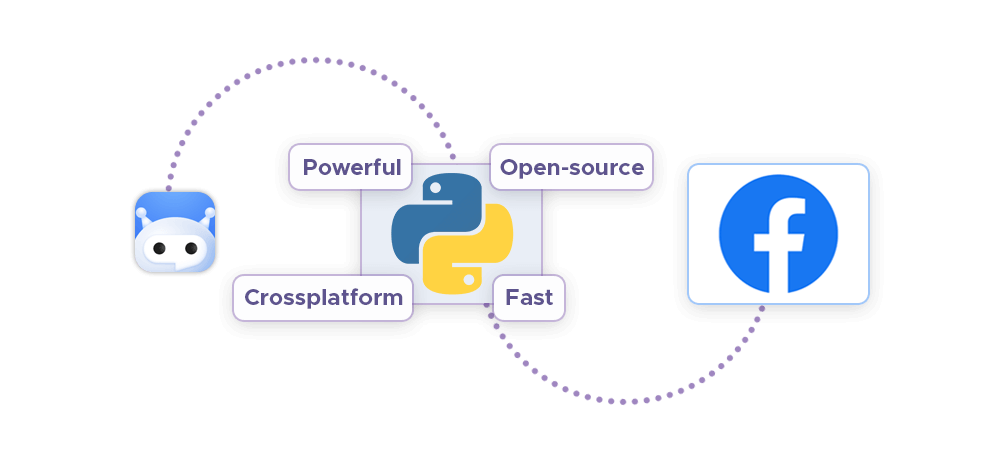
Another way of scraping Facebook pages involves building a custom scraping solution using Python – arguably, the best programming language for creating Facebook crawlers. Although this option requires some programming knowledge on your part, it can offer more control and fine-tuning capabilities compared to simple visual scrapers. In this section, we’re offering a step-by-step guide of using a ready-made Python library to scrape Facebook.
❔ Further reading: We have an up-to-date overview of Python web crawlers on our blog – or you can watch its video version on YouTube.
🍲 Further reading: Using Python's BeautifulSoup to scrape images
🎭 Further reading: Using Python's Puppeteer to automate data collection
Installing the package
As the name suggests, Facebook Scraper is a Python package that allows us to scrape Facebook: It comes with a set of handy functions that we can use later to extract different Facebook datasets. Let’s install the package using pip:
pip install facebook-scraperFetching Facebook post data
To get post details, use the code snippet below. The get_posts() function uses the group ID as the parameter – you can find it in the group’s URL (e.g. facebook.com/Nintendo):
from facebook_scraper import get_posts
for post in get_posts('metaai', pages=1):
print(post['text'][:50])Here’s the output – a detailed overview of a post:
{'available': True,
'factcheck': None,
'fetched_time': datetime.datetime(2021, 4, 20, 13, 39, 53, 651417),
'image': 'https://scontent.fhlz2-1.fna.fbcdn.net/v/t1.6435-9/fr/cp0/e15/q65/58745049_2257182057699568_1761478225390731264_n.jpg',
'images': ['https://scontent.fhlz2-1.fna.fbcdn.net/v/t1.6435-9/fr/cp0/e15/q65/58745049_2257182057699568_1761478225390731264_n.jpg'],
'is_live': False,
'likes': 3509,
'link': 'https://www.nintendo.com/amiibo/line-up/',
'post_id': '2257188721032235',
'post_text': 'Don’t let this diminutive version of the Hero of Time fool you, '
'Young Link is just as heroic as his fully grown version! Young '
'Link joins the Super Smash Bros. series of amiibo figures!\n'
'\n'
'https://www.nintendo.com/amiibo/line-up/',
'post_url': 'https://facebook.com/story.php?story_fbid=2257188721032235&id=119240841493711',
'reactions': {'haha': 22, 'like': 2657, 'love': 706, 'sorry': 1, 'wow': 123}, # if `extra_info` was set
'reactors': None,
'shared_post_id': None,
'shared_post_url': None,
'shared_text': '',
'shared_time': None,
'shared_user_id': None,
'shared_username': None,
'shares': 441,
'text': 'Don’t let this diminutive version of the Hero of Time fool you, '
'Young Link is just as heroic as his fully grown version! Young Link '
'joins the Super Smash Bros. series of amiibo figures!\n'
'\n'
'https://www.nintendo.com/amiibo/line-up/',
'time': datetime.datetime(2019, 4, 30, 5, 0, 1),
'user_id': '119240841493711',
'username': 'Nintendo',
'video': None,
'video_id': None,
'video_thumbnail': None,
'w3_fb_url': 'https://www.facebook.com/Nintendo/posts/2257188721032235'}The get_posts() function can also take a wide range of additional parameters:
pages: defines the number of requested post pages (default:10),timeout: defines the wait time before timing out (default:30),extra_info: requests post reactions (default:False),- And more.
Scraping Facebook profile info
To scrape profile data, let’s use the get_profile() function. The function requires username as the parameter – you can find it in the profile URL (e.g. facebook.com/zuck):
from facebook_scraper import get_profile
get_profile("zuck") # Or get_profile("zuck", cookies="cookies.txt")Here's the output – an overview of Mark Zuckerberg's profile:
{'About': "I'm trying to make the world a more open place.",
'Education': 'Harvard University\n'
'Computer Science and Psychology\n'
'30 August 2002 - 30 April 2004\n'
'Phillips Exeter Academy\n'
'Classics\n'
'School year 2002\n'
'Ardsley High School\n'
'High School\n'
'September 1998 - June 2000',
'Favourite Quotes': '"Fortune favors the bold."\n'
'- Virgil, Aeneid X.284\n'
'\n'
'"All children are artists. The problem is how to remain '
'an artist once you grow up."\n'
'- Pablo Picasso\n'
'\n'
'"Make things as simple as possible but no simpler."\n'
'- Albert Einstein',
'Name': 'Mark Zuckerberg',
'Places lived': [{'link': '/profile.php?id=104022926303756&refid=17',
'text': 'Palo Alto, California',
'type': 'Current town/city'},
{'link': '/profile.php?id=105506396148790&refid=17',
'text': 'Dobbs Ferry, New York',
'type': 'Home town'}],
'Work': 'Chan Zuckerberg Initiative\n'
'1 December 2015 - Present\n'
'Facebook\n'
'Founder and CEO\n'
'4 February 2004 - Present\n'
'Palo Alto, California\n'
'Bringing the world closer together.'}Getting Facebook group info
To scrape group data, let’s use the get_group_info() function. The function requires group ID as the parameter – you can find it in the group’s URL (e.g. facebook.com/MetaAI):
from facebook_scraper import get_group_info
get_group_info("metaai") # or get_group_info("metaai", cookies="cookies.txt")
Here’s the output – an overview of Facebook’s official AI team page:
{'admins': [{'link': '/metaai/?refid=18',
'name': 'Meta AI'}],
'id': '352917404885219',
'members': 287201,
'name': 'Meta AI',
'type': 'Public group'}Troubleshooting
Keep in mind that Facebook’s best anti-scraping measure is changing page structure – if code above doesn’t work, you might have to examine Facebook’s HTML elements manually via the browser console to see if they’re different.
What about the Facebook API?
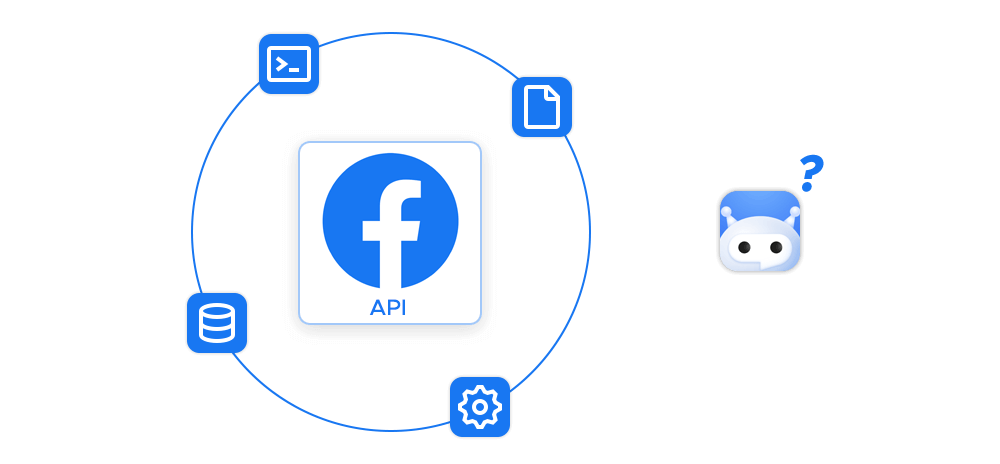
As a website operator, Facebook is much less lenient towards web scraping: The Cambridge Analytica incident (a 2013 scandal which highlighted how easy it was at the time to collect personal information of Facebook users without their consent) sparked debates about privacy all across the web. Since then, the company has been addressing this problem, with Facebook API becoming more and more limited – and the concept of an official Facebook scraper API turning highly improbable.
Facebook tries to regulate web scraping on its platform via these documents: robots.txt and Automated Data Collection Terms, both of which state that automated access is forbidden (unless you have express written permission.
) Upon detecting a bot, Facebook may try to block its IP address and terminate its owner’s account. Although the company isn’t known to pursue legal action against web scraping companies, you should still consider these risks.
Due to these changes, web scraping enthusiasts are left with unofficial APIs. Although they are still enough to build functioning Facebook profile crawlers and other services, they also require some heavy-lifting on the developer’s part: Facebook is constantly updating their page structure to render third-party crawlers obsolete, so developers have to regularly update their bots.
Is it legal to scrape Facebook data?
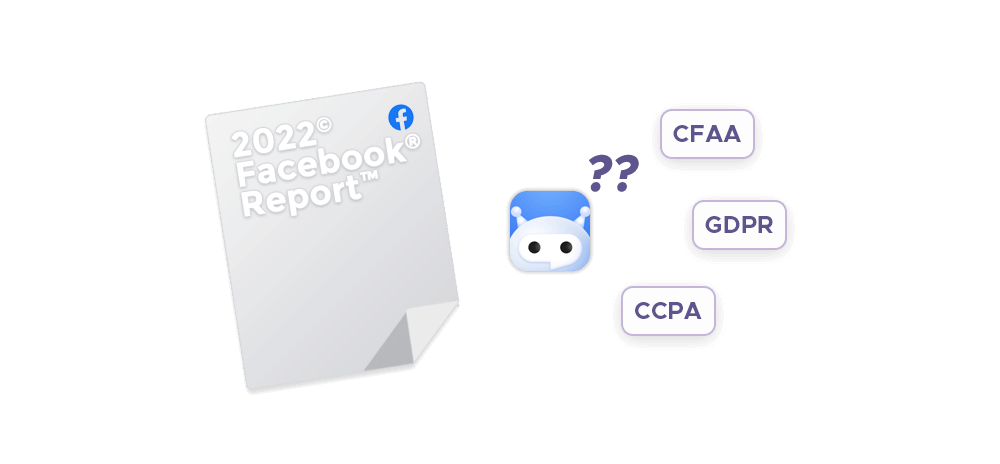
Please note that this section is not legal advice – it’s an overview of latest legal practice related to this topic.We encourage you to consult law professionals to view and review each web scraping project on a case-by-case basis.
🌍 Further reading: We’ve recently covered the topic of web scraping legality in great detail – take a look at it for a general overview of working with data owned by companies like Google, LinkedIn, Amazon, and more.
Web scraping from the judicial perspective
The web is global: A Europe-based startup can host a server in the US which Asian users can access without a hiccup. Web regulation, on the other hand, is fragmented into several state-, country-, and region-level acts that govern intellectual property, privacy, and computer fraud, and other areas:
- General Data Protection Regulation (GDPR) and
- Digital Single Market Directive (DSM) for Europe,
- California Consumer Privacy Act (CCPA) for California in particular,
- Computer Fraud and Abuse Act (CFAA) and
- The fair use doctrine for the US as a whole,
- And more.
Generally, these regulations agree that web scraping is legal – but the devil is in the details. Firstly, you should stick to collecting publicly available information to keep your operation legal – otherwise, you may be breaking privacy laws like GDPR and CCPA.
Secondly, per the fair use doctrine, you should use collected data to generate new value for users – a good example is building an analytics tool for Facebook groups. Conversely, scraping Facebook pages and simply republishing this data to another platform breaks copyright laws.
What is the best method for scraping Facebook data?
Infatica Scraper API is a great Facebook scraping service because it manages the entire data collection pipeline, including a residential proxy for all Facebook content. This is important because Facebook’s anti-scraping systems rely on various factors (e.g. IP addresses) to detect bots – and Infatica saves you time and resources by offering a proxy configuration.
Alternatively, use Python to build custom Facebook profile crawlers – but keep in mind that maintaining them requires even more time than actually building them. Another option is visual scrapers – browser extensions that allow you to collect data via point-and-click interfaces. While their functionality may be limited, they’re the easiest way to test the waters with web scraping.








